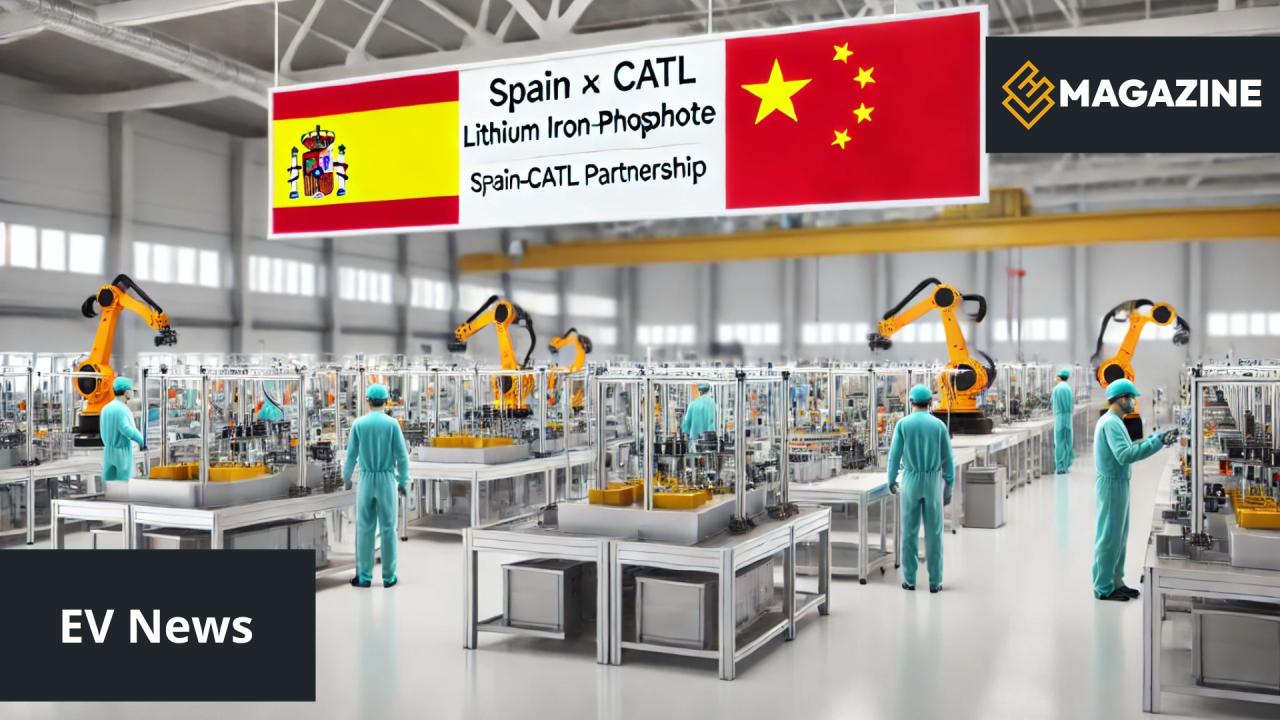Stellantis and CATL announced on December 10, 2024, a joint investment of up to €4.1 billion in a large-scale lithium iron phosphate (LFP) battery plant in Zaragoza, Spain. The aim of this project is to support European battery production, which is crucial for the development of electromobility and achieving climate goals.
What are LFP batteries?
LFP batteries, or lithium iron phosphate batteries, represent an alternative to commonly used lithium-ion batteries containing nickel, manganese, and cobalt (NMC). These batteries are more affordable, durable, and less reliant on rare raw materials. LFP technology is often used in electric vehicles with shorter to mid-range driving distances, making them more accessible to a broader range of customers.
The large-scale factory in Zaragoza
The new factory in Zaragoza will be designed to be carbon-neutral, with production expected to begin by the end of 2026. The total production capacity could reach up to 50 GWh annually, equivalent to batteries for hundreds of thousands of electric vehicles. The project will be implemented in several phases, and its success will depend in part on the support of Spanish and European authorities.
The significance of the Stellantis and CATL collaboration
The partnership between Stellantis and CATL offers strategic benefits for both parties. Stellantis gains access to advanced battery production technology, which CATL has already successfully applied in its factories in Germany and Hungary. On the other hand, CATL strengthens its position in the European market and supports global efforts to reduce emissions by increasing the availability of LFP batteries.
Stellantis and decarbonization
Stellantis aims to achieve carbon neutrality by 2038. In addition to LFP batteries, it also focuses on NMC technologies and exploring innovative solutions for battery cells and packaging. This approach enables Stellantis to meet diverse customer needs while supporting sustainable electric vehicle production.
Impact on the European market
The investment in the Zaragoza factory will strengthen the European battery value chain, a crucial step toward independence from imports from other regions. It also sends an important signal to the entire industry that electromobility is a strategic priority for Europe, supported by major players and public institutions.
Conclusion
The partnership between Stellantis and CATL represents a significant step forward in developing sustainable electromobility in Europe. The Zaragoza factory will not only bring new capacity for LFP battery production but will also significantly boost the local economy and innovations in clean technologies.
Source: stellantis.com, evmagazin.cz

